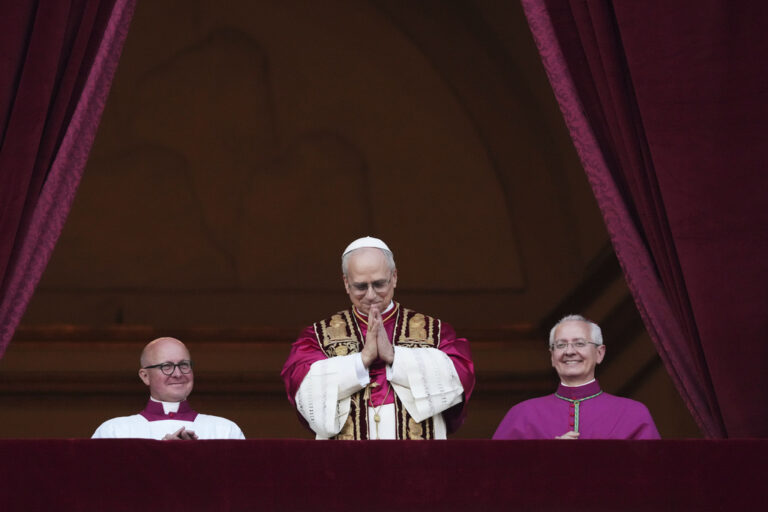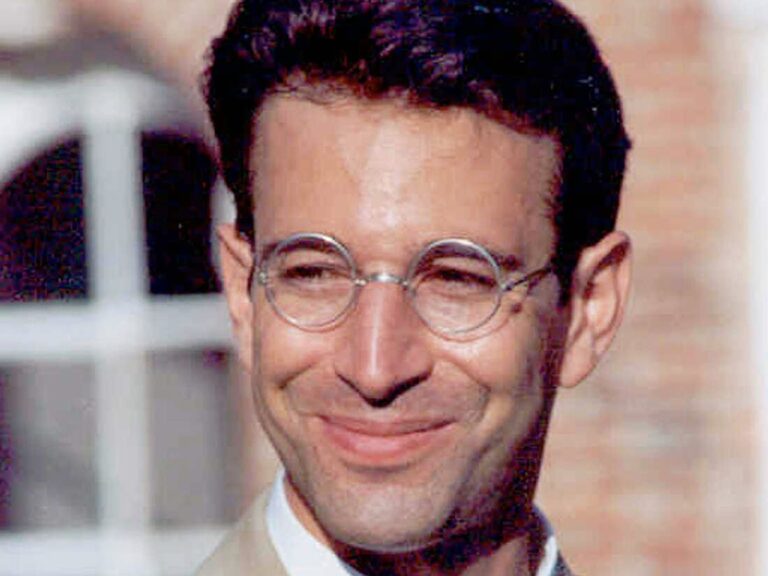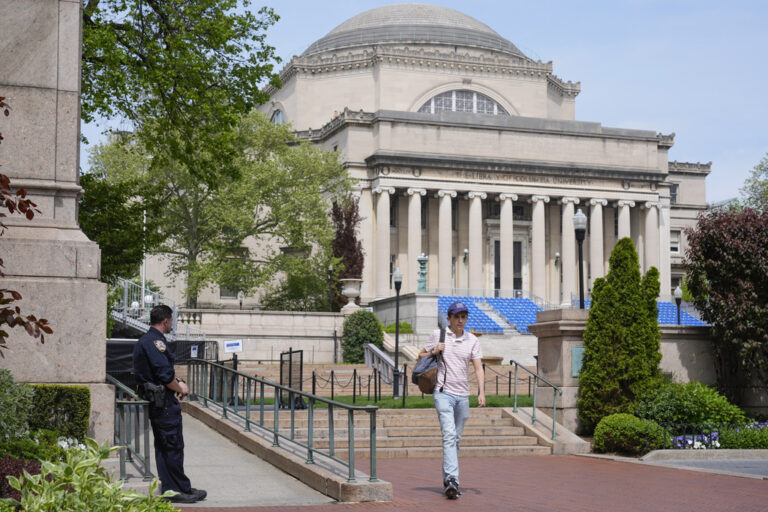As tuition costs rise and families struggle to keep up, the outcry for solutions has grown louder. One common suggestion is to demand schools open their financial books to the public so parents can scrutinize their spending. While this might sound appealing in theory, it’s an unrealistic and fundamentally flawed approach.
Here’s why: Private schools are just that—private. They were created by individuals or groups offering a service, not by communal organizations obligated to serve everyone at any price. These schools may rely on donors and tuition-paying parents, but that doesn’t make them public entities accountable to everyone’s financial scrutiny. The responsibility to educate children lies with parents, not schools. If a parent feels tuition is too high, they can look elsewhere or explore alternative solutions. Schools don’t “owe” parents anything unless those parents are paying tuition.
This sense of entitlement—that schools should justify their expenses or lower costs simply because parents feel burdened—misses a crucial point. Schools, like any other private entity, have the right to set their prices. If you don’t like what they charge, you’re free to go elsewhere. The challenge, of course, is that all tuitions are high, and there aren’t many alternative options. But that’s not the schools’ problem to fix—it’s a market reality.
To illustrate, let’s consider other necessities. Kosher food prices have skyrocketed in recent years. Yet, no one demands that kosher grocery stores open their financial books so we can audit their profit margins. Why? Because it’s not our business. If you don’t like the prices at one store, you can shop somewhere else—or not buy that item at all. Similarly, flooring is a necessity for any home. Yet, we don’t call for flooring companies to justify their pricing or “cut the fat” in their operations to make floors cheaper. Imagine if flooring business owners, of all people, started demanding schools open their books while keeping their own closed. The irony would be hard to miss.
The fact is, schools operate within a private system, and their pricing reflects the reality of what it takes to run an institution. Teachers, buildings, utilities, supplies, extracurricular programs—it all costs money. If tuition is high, it’s because providing a quality education is expensive.
So, what can we do? Complaining and demanding transparency aren’t solutions. If you truly believe tuition can be lower, then start a school of your own. Analyze the costs, find efficiencies, and create an institution that provides the education you want at the price you believe is fair. It’s not impossible, but it’s also not easy—and that’s why no one has done it yet.
Yes, tuition is high, and it’s frustrating. But the responsibility doesn’t lie with the schools to make it cheaper. It’s time to shift our perspective and accept that schools, like any private business, operate in a free market. The burden is on us, as parents and community members, to find creative solutions, not on schools to lower their standards or sacrifice quality to meet our demands.
The views expressed in this letter do not necessarily represent those of YWN. Have an opinion you would like to share? Send it to us for review.












36 Responses
What you can do. Make sure you resister to vote. Vote Republican down the line. Maybe then you can get funding for private schools like certain other states.
Anyone want to tell the author that schools are non for profits and are required to have open books?? And if they are private business then they lose their govt funding. Just saying.
It’s correct what you are saying. But that’s for a general market. This is a religious orthodox market. When a parent is feeling the burden of the tuition plus the cost of food, home expenses, cost of living you can start to cut down or cut out as much as a person can. Tuition has no alternative. A parent that is orthodox can’t say they will take their kids to public school cause frankly that is the only option to escape that expense. Putting them in another yeshiva won’t solve it cause it will be the same cost in that other yeshiva. Yes schools have lots of waste going on. the fact a school that is private doesn’t have to make their books public is true but if the schools have nothing to hide then why hold the excuse of its private we don’t have to show anyone the books. I’m not against or for the schools. Just what is being said in this article fits nicely if you are shopping in a bodeiga. Yes dont complain why the bodeiga is expensive go to walmart for cheaper. Parents don’t have the Walmart or costco price for schools. This might not hurt most parents. But when a parent has 3 or more kids in yeshiva. That can be an expense that’s more than their rent or mortgage. I feel for the parent and I hear the yeshiva. But this article doesn’t apply nor does it help the plight of the parents.
Agree that it’s silly to ask school to open their finances. It’s obvious what’s going on. It cost a fortune to run a school. The standard is for young families to have a single earning parent for a few years until both parents can get a job. Based on this, there is just not enough money coming into the schools to cover their bills, regardless of how they choose to spend the money. The solution is for people to get jobs and have an income before getting married and having families. Or else having grandparents pay the tuition bill for their grandchildren. Government vouchers would work too. If someone doesn’t want to pay tuition, try telling them to not go to yeshiva… it’s not going to happen. Online fundraisers are fizzling… every week there is another school trying to raise a million dollars to survive. Everyone has to be responsible about paying their bills. Opening up the books would just make people Upset that there are principles and Administrators making 200,000 or more a year which we can argue about but cutting those down would make the positions less interesting and won’t save the schools. It’s like when communism went after the rich business owners… it sounds good to cut down the higher earners but the underlying problems won’t get fixed.
Also when schools get extra funding from the government how much of that funding does parents see come off their tuition bills.
This sounds like a troll post/article. I have doubts the author believes everything he wrote. He’s likely waiting to chuckle as he reads the inevitable comments.
Additionally, most yeshivas are part of mosdos, and not privately owned.
IF YOU FUNDRAISE US LIKE CRAZY, TAKE KUL MINEI GOV’T PROGRAMS, AND CALL YOURSELF NONPROFIT, DON’T HAVE THE CHUZPA TO CALL YOUR SELF A PRIVATE BUSINESS WHEN IT’S CONVENIENT FOR YOU!!!
Chaim Askan Wannabe – Sounds like you are upset that the letter writer mentioned a flooring company. No idea why he is screaming like that. Typical.
I actually fully agree. Schools are private businesses. It’s none of your business what they make.
Correct, it’s no one’s business what they make. The argument it’s a private business falls out the window, once I’m asked to contribute to a dinner, journal, parlor meeting, building campaign (in what other profession, are people asked to donate to help a business entity build a place for doing business!). Do I get a piece of the profits the Yeshivas simcha hall brings in? Why am I donating to the building? Are we partners in our children’s chinuch, or do we have a business/customer relationship?
Parents and Yeshivas alike have to answer this question. Only then, can we move onto the next step, find a solution to ever increasing tuitions.
So u watched the convention speech, so here are a few takeaways
1. Mr orzel started with the example of a frum family w 5 kids making 350 grand can’t pay tuition, question is that the avg in ysv? What percent of frum parents make 350
2. Both speakers said they no almost nothing about vouchers in ny! Are you kidding that’s the lifeline in bp and heimish neighborhoods , with ads in daily willing to help u get them
3. Upk and k3 are paying 16000 not a typo for every little kid , it’s been huge game changer
4. Chassidish mosdos are not privately owned.. so they are half yes half the price
I never saw supermarkets crowdfunding fundraising…. if the schools are so “privare” then we wouldn’t need to “donate” a few times a year for milaveh malkas dinners… tip rabeiyim hefty amounts for their devotion to chunuch, which they do greatly deserve. But if it was a “private” business they would need to pay the rabeiyim enough, like any there profession. But they don’t. All in the name of avodas hakodesh, so the rabeiyim dedicate their lives to this. The parents tip, give “building fund” play fees milaveh malka fees dinners etc. All to keep this system working. So don’t give us the Private Business blah blah. If it’s so private, then there is an invoice for the service provided and that’s where it starts and ends. Can’t have both worlds if you do want all the donations and our kids going around selling raffles, then yes we are entitled to see the books when you cry again that there are no funds.
The main thing I can’t figure out is how come when klal Yisrael needs new ambulances, new sefer torah for every niftar, and food drives for every chag, the money is there. And quickly. And when there’s a sad story of kids that lost a parent they make sure the kids have a million dollars the next day. But when it comes to Jewish Education? Suddenly we can’t come up with the money for anyone. There’s no help for Jewish children. Nobody cares if you have money for tuition or not. It’s not subsidized and there’s no tangible assistance, and it’s not an important Community discussion. So there you have it, we value helping a kallah get married, but the same kallah’s child we won’t help educate. Priorities don’t exist.
Nig nog got triggered.
I own a flooring company. Why did you feel the need to mention me?
I agree that it’s none of your business to see a yeshivas books. You have some nerve making that demand. I mean this seriously.
I think most schools function as non for profits , even though they may have private ownerships and management.
Basically meaning that they are there to service the community, most of them open not to make money but to help fill a void.
Once they are up and running they take a tremendous amount of money to run. Between the property , utilities, salaries, maintenance, security etc, the expenses are huge and even assuming all parents paid their share(which some don’t) it’s often not enough and the school needs to fundraise more, especially if they need to purchase a building.
Running a good school is expensive, and top quality staff doesn’t come cheap. Tuition won’t always cover the cost, especially in a smaller school.
Parents need to trust that their school is honest and spending the money properly
That said, not everyone who opens a school is good with money management. A non affiliated board to help schools review their annual budgets and give recommendations as to how improvements could be made, might be helpful for certain situations.
While I do trust my kids school, I have heard stories of owners of schools using school credit cards to make personal purchases. I have heard of school administrators stealing government funds earmarked for repairs. I’ve also heard of schools with rich board members who spent excessively for all sorts of projects because they would rather charge a higher tuition instead of spending less and lowering the fees. I believe that’s not the majority but these things do happen.
Why doesnt the same rabble rouser from Lakewood demand that BMG open their books before raising 50 million dollars for Adirei HaTorah? We need to know this stuff. Come on! Start making demands. We need to know how much there Roshei Yeshiva salaries are. How much their grandchildren get.
Man up and start asking real questions. Stop being busy with small schools. Go to the big budgets that are robbing us dry.
Um, truth be told, I have a feeling we’d see some pretty nasty dirty stuff if we asked the grocery stores and other businesses to show their books. They blame certain factors for the inflation but I’m pretty sure they’re cashing in at our expense in many areas.
It’s not like we have elsewhere to send for schools. I say create a a DOGE committee for the schools and businesses with inflated prices and let’s see where spending cuts can happen….
Think Elon Musk has some extra time?
Others have noted the contradiction between claiming to be a “private business” but still fundraising/dinners, charging for a “building fund” and other such items that clearly distinguish a yeshiva from your local grocery store.
Another point I did not see above is that “Full Tuition”, for those blessed to be able to afford that, is sometimes more than actual full tuition but rather, in fact, full plus partial scholarship of other students. That’s where the claim to be just another “private business” gets really absurd.
I just don’t get why every new school in Lakewood has to build these fancy buildings that cost $20m plus to build, why can’t they just either make due with what they have or if they need to expand do something simple instead of burdening all their parents to raise or give of thousands more on top of what tuition costs.
The point i was trying to make was , that even a family that earns $300k is having difficulty paying full tuition .In the Monsey community the following are the average expenses for a family with 5-6 children. Bear in mind that take home pay after taxes is at best $225k .
Housing ( mortgage taxes , utilities , landscaping , water and minor repairs … $85,000
Food …….$50k
Cars ( including insurance and gas )…..$15K
Health Insurance ……$25k
Camps ……$20k
Clothing …….$15k
Charity ……$10k ( minimum )
Extras…..$10k Total $235k
Already $10k under water , before any tuition is paid .
And no ,that is not necessarily the average in our Yeshivah . Not by a long shot ! .FYI, YSV is not privately owned .. Our funds are used only for the betterment and benefit of our students . And our funds are spent wisely and very carefully. We have earned an excellent reputation for our chinuch and education . And there is a reason for this . Our Hanholoh and staff are over the top. Our curriculum ( whether limudei kodesh or limudei chol ) and our special programs (remedial , kriah programs , self contained classes ,theme programs , special events , etc. ) are simply beyond ! We do it , cover all the bases , and then some .
There are no government vouchers in NYS for any Yeshivah . Period ! It does not exist ! Yeshivos do receive , UPK funding ( minimal ) mandated service funds ,bussing , Title1 and Title 2 ,and various federal and state grants for security , etc . But , the budget can not be covered just from tuition . So fundraising is an integral of our Yeshivah and for that matter of every other Yeshivah .
Entire thing worth it. Got under the laughing stock skin. Oilam is rolling on our private chat making fun of this jerk for months.
Here is the real solution. We must force the government to give us vouchers. If one hundred thousand yeshiva kids in New York just register for public school the government will have no choice as they don’t have the room and they will be forced to give New York and New Jersey yeshivas real funding. Why can’t we all register to vote. Most heimisha don’t vote. I meet people who before Trump election kept talking how they hope Trump wins. You ask them if they will vote. Guess what. They are not even registered and never voted in their life. If yeshivas and Mosdis would force every parent to vote just as they force parents not to have smart phone or unfiltered internet then we would get a response from the politicians. If two hundred thousand parents voted religiously or their kids will be kicked out of school you will see change. Otherwise we are sitting ducks.
As much as I am disgusted with what takes place, all of course being, under the banner of “l’shaim shomayim”, I have to admit that I agree with what the author wrote. We suffer because there are no longer Kehillah yeshivas in our midst.
Large families is for the rich, the rest drive responsibility =birth control.
Everyone stop complaining. Be happy we have good schools to bring up the children of klal yisroel. Some people pay full tuition some people pay some tuition and some people don’t pay at all. Every yeshiva has plenty of fundraising to do because they understand that certain people can’t pay and they take their kids in anyway. You want to open their books?? No problem make sure one of those books you open is the accounts receivables. You’ll see any decent size school with at least half million dollars. A lot of bad attitudes in this conversation
sruly 123- lets clarify you are running a stellar mosad, a public servant…
here are some points
1. vouchers are all over nyc ask any mosad in bp not if they have vouchers but rather what percent have , in fact you almost cant get a spot w/o it i challenge you to call , rachmastrivk, etc…
2. u forgot to mention lunch program which is a lifeline ,
3. to talk about tuition in the same breath as 300 g put out of touch with the avg parent because most ppl watching are not in that bracket
4 you mentioned camps , the chassidish are 40% cheaper . i mean even the good ones that do trips… the reason is that each camp has a director a ball habos that not only does NOT take a salary yet puts in his won $$ and the camp is an extension of the mosad… ( tzelem – ari kohn, munkatch heshy green , visnitz the neimans….
The entire premise of the article is flawed.
A non profit is not a private entity, it is a public entity. The directors are fiduciaries and are beholden to the public. As a director of a non-profit myself, I am well aware that the money I hold is not mine, it belongs to the community.
That does not mean to say that they are required to open their books to the public, although many good nonprofits do that. They would certainly gain the trust of the community if they did do that. See the federation and others that do this annually.
The truth is that a true non-profit school would be required to file a 990 that would make them open to stating their income and expenses, unfortunately many of our schools incorporate as synagogues which exempts them from filing a 990.
Heshy,
That’s been brought up many times & it doesn’t work.
First this money to pay for these kids doesn’t come out of their pockets so why would they care about the added expense?
2nd, Even if they can’t take all they can take some. What will you do when YOUR child is registered & you receive paperwork with the child’s public school & bus stop?
What will you do if YOUR child is sent to another Non-Jewish (Catholic?) private school the public school system contracted with?
If you don’t send them on the first day of school your child is truant.
If you never had any intention of sending your child (which we know is the case) you 1. Cost the system a lot of time & expenses 2. Proved to the world that yes, we are a deceptive & devious people who cares nothing about anyone else, only ourselves.
It’s a lose-lose-lose tactic that doesn’t work (which is why with all the talk it never happened & never will happen).
ruby 40
The vouchers you are talking about are for special education only , and only in NYC ! I’m not going to comment on how some Yeshivos in the city obtain those funds .
Not all children qualify for the lunch program . Many parents pay for lunch privately . In most Yeshivos that follow the letter of the law , there is really no financial benefit to the Yeshivah .
The only reason why I discussed that families that are supposedly earning a somewhat decent parnossoh, are having difficulty in paying tuition . is to bring attention to the fact of how much the cost of living has risen over the last few years ., and that it’s becoming more and more difficult to pay tuition .
There needs to be new ideas on how to generate new streams of income to Yeshivos , so that parents can get some relief . Agudah is working on some federal funding bill in Congress . You never know !
I was on the board of a prominent Brooklyn “private” yeshiva about thirty years ago for about 6 years and I can tell you from first hand experience that this yeshiva, at the time, only collected about 60% of their expenses from tuition and they were pretty frugal. As the years went on that percentage only got worse going to 50% and then below 50%. The balance had to be made up by benefactors, dinners, fund raising, etc. Private doesn’t mean that it’s a private for profit business. It only means that some people opened a yeshiva for the benefit of the klal. Yeshivos are not a money making endeavor.
I agree ONCE AND FOR ALL people should know that a school is a private business and nobody should give anything to building campaigns dinners etc
The real solution to affordable tuition is for the Rabbonim and communal leaders to establish a income based education tax (like a Jewish 1040 form) in the frum community, which would pay into a community education fund. That means, if your part of the community, you pay into this fund, regardless of whether you currently have kids in yeshiva.
Hayjay (& many others),
A little history lesson.
Everyone heard of the “Enlightenment” which caused a major crisis in the Jewish world.
The 2nd issue was the “Emancipation of the Jews”. In America Emancipation refers to freeing the Slaves. For the Jews in Europe it meant the collapse of the “Coercive Kehilla”
There was a time when Jews could not be citizens (mainly due to religion) of the area they lived. So all Jews in the community were ruled by the Kehilla Board. They were backed by the power of the Non-Jewish govt & could fine or even jail you. Individual Jews did not pay taxes to the govt. So how did the “Kehilla Board” get the money to pay taxes & operate the Kehilla? By taxing the Jews. That is why Jews in the community were forced to buy meat, sheitels, Shabbos candles, Esrogim, Mezuzahs, etc. from the Kehilla stores because if you didn’t you weren’t paying your fair share of taxes.
If you don’t like the Kehilla Shochet or Sofer, too bad. Go move to a Kehilla you like. There was no such thing as opening a Shteibel or a Cheder that matched your Hashkafa. In other words you lived under the complete control of the “Kehilla Board” Ever wonder why we’ve all heard that “Every Jew in a community had the same Minhagim”? Why? Jews didn’t move around or come from different backgrounds? Of course they did but the culture was when you joined a new community you (willingly or were forced to) accepted their Minhagim.
The “Emancipation” occured alongside the “Enlightenment”
This started what we see today where every Jew can do whatever they want.
The ONLY Jews which in any way recreated the “Coercive Kehilla” is the Chasidim (& this is done on a voluntary basis). I choose to follow this Rebbe & what my Rebbe tells me to do, I do.
With 100,000 Frum Jews in Lakewood (you calculate how many families) please tell me which “Rabbanim & Community leaders” have the power to require ALL Jews to fill out a “Jewish 1040” & pay taxes based on it?
What happens when many Jews opt out? What happens when a Jew doesn’t like a school that benefits from this money & refuses to pay? What happens when the inevitable power struggle occurs about which schools make the list & how the money is divided?
It’s nice to dream that ALL Jews in Lakewood ascribe to the same principles & beliefs & follow the same Rabbanim but that is very far from reality.
Yeshivos navigate the field rather well. They consider themselves private when that counts. Tolerance of anyone snooping or questioning their practices in administration is zero. But they proclaim to the world that they are public services. Thus they claim entitlement to tzedokoh. In practice, this system works well for them. And we, the public, have no voice. But upon a bit of thought, playing both sides of the fence is questionable. And the logic supporting each of these positions is poor.
If yeshivos are public institutions, there should not be restrictive admissions. We might argue that a yeshiva wishes to cater to a specific type of student. But then an application for one that doesn’t qualify should be suggested a better alternative. Yeshivos could work with each other that way. Perhaps this happens sometimes. When a student cannot succeed, either academically or for behavioral reasons, there should be efforts to address the problems in-house, or to refer elsewhere and assist with an alternative placement. Practicing this way indicates a public service and an asset to Klal Yisroel. But it is pathetic that this is not the norm.
As private institutions, collecting funds from outside the parent body invites huge questions, some reflected in earlier comments. Yes, tuition costs can be set anywhere. Competition might come into play, something we often observe in the vying for reputations.
It seems clear that running a yeshivos is a highly challenging job, and it is often thankless. In a community that lives an expensive lifestyle, without wealth, tuition might be prioritized in a manner that pleases the yeshiva. Parents who struggle can be sidelined, rewarding the children of wealthy parents. Expelling students whose parents can’t pay in full is inviting, and at one time was common. Parents being bullied into debt is still common. There are administrators who do these jobs heartlessly. I choose to believe that most don’t, and are overwhelmed with the costs and other challenges.
In some instances, parents have been known to make major purchases and taken vacations while defaulting on tuition. Situations like this are angering. For all who might wonder, yeshiva administrators are humans, and they are subject to the full range of emotions. We all wish they were above that. Enough said.